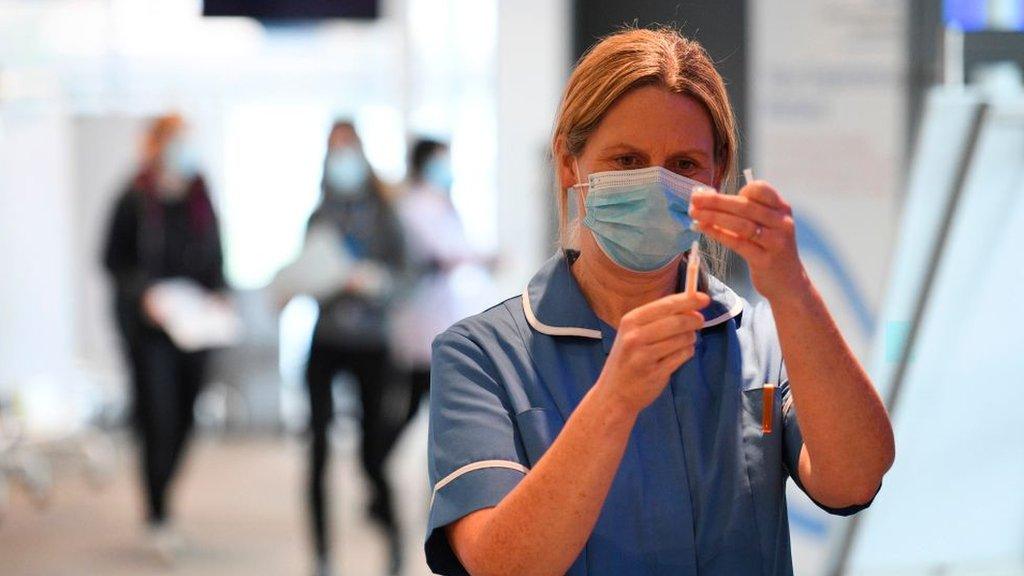Covid-19: Pfizer director says science 'winning the race' against virus
- Published
- comments
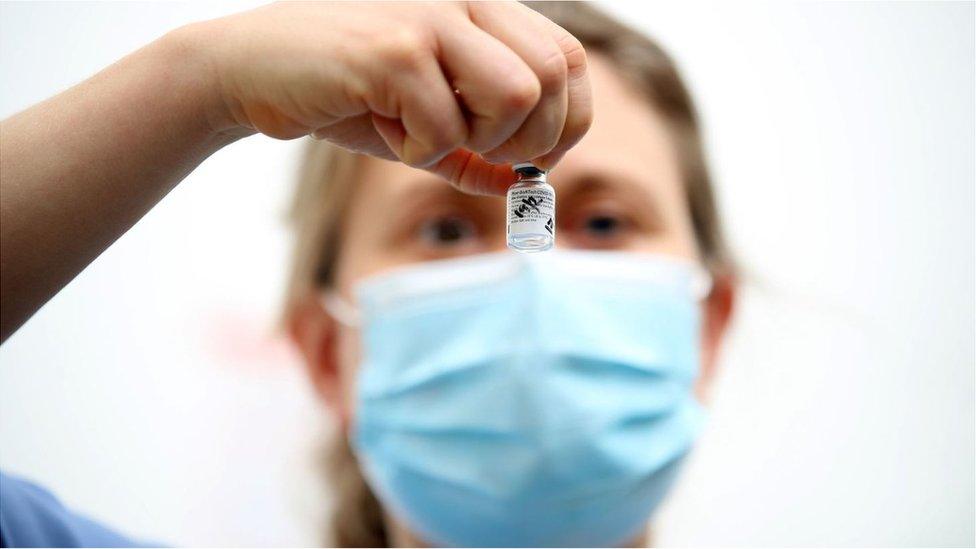
Science is winning the race between coronavirus and the vaccine, Pfizer's UK medical director has said.
Dr Berkeley Phillips told BBC News NI it was important people were "allowed to start living again".
While the main threat continues to come from new variants, Pfizer is already designing an updated vaccine that will work, he said.
Dr Phillips said "incredible progress" had been made in the past year and "we're winning that race".
"If you look at what's happening in the UK there are dramatic reductions in the death rate, dramatic reductions in hospitalisations and in the number of cases," he said.
"I do think we have to start living again.
"It's obviously down to the governments of the devolved nations to decide exactly the right approaches - science is only one part of the decision making and that's why these decisions are so difficult."
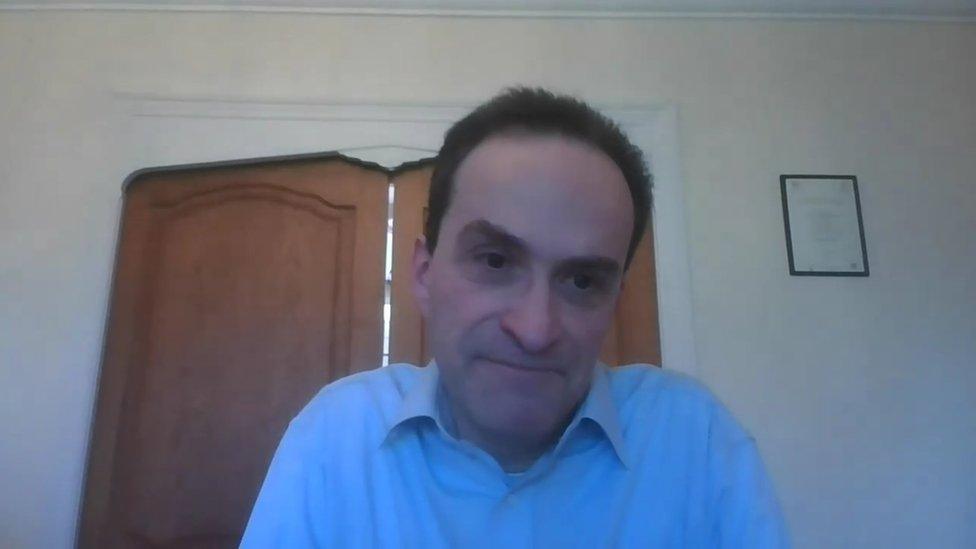
Dr Phillips said the right balance should be struck between lockdown and unlocking too quickly
When asked about the importance of reopening society, Dr Phillips said the right balance should be struck.
"There are many cancers going undiagnosed and people are going into hospital with suspected heart attacks and strokes and there are so many other conditions," he added.
"It is a balance between lockdown and unlocking too quickly."
'Invisible enemy'
Pfizer UK has been at the heart of vaccine research and trials since the start of the pandemic and is forecast to deliver over two billion vaccines by the end of this year.
According to the doctor, a turning point for him and the team based at Surrey, were the pictures of Irishwoman Margaret Keenan, the first person to receive the vaccine on the NHS.
"It was a momentous moment," he said.
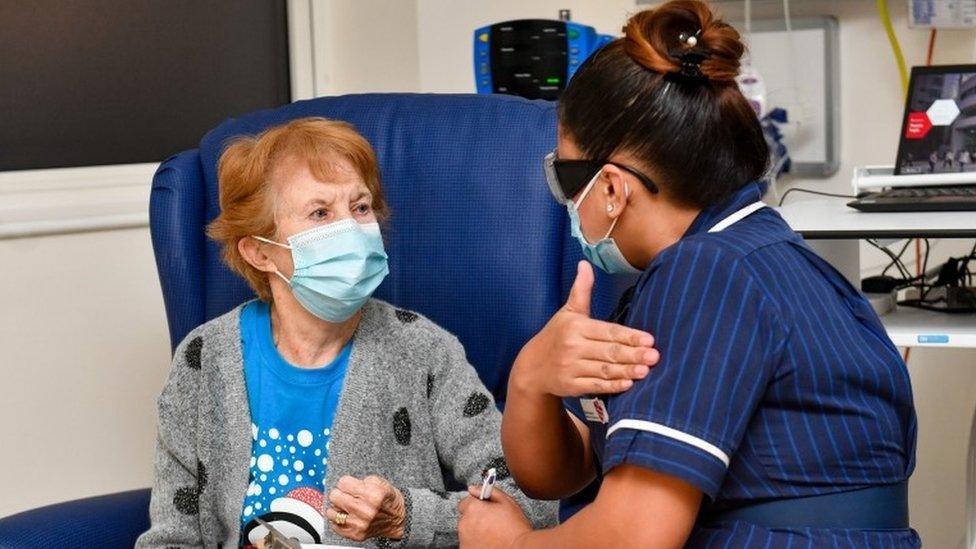
Grandmother Margaret Keenan was the first person in the world to receive the Pfizer jab
"Obviously I knew of 44,000 people who had been given the vaccine as part of the trial, but this was the first person on the NHS.
"I recall watching it and thinking this is the beginning of the fight back. It has been a war and has been a war against an invisible enemy.
"That moment when I saw her wearing her Christmas jumper felt like the tables were turning and the fight back against the virus was beginning."
Dr Phillips, a cardiologist, joined Pfizer in 2001.
He said he never imagined he would be working on a vaccine that would have such a huge impact on society and the global population.
Recalling the morning when he got the news the vaccine had worked, he said it was an amazing feeling.
"First the person told me it had worked, then he said it was 95% efficacious which was just unbelievable when we thought it might just be 50% to 60% - so yes it was incredible."
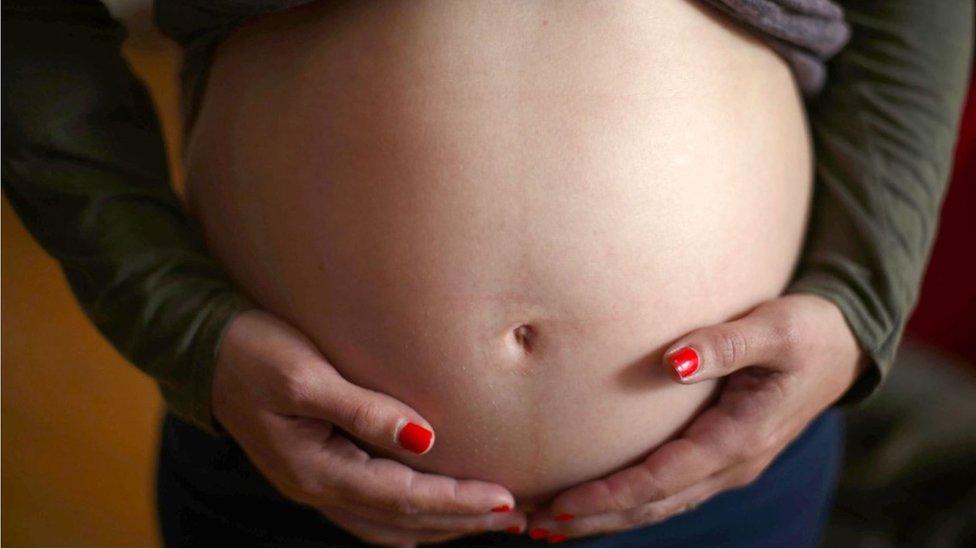
Pregnant women in the UK are taking part in trials of the Pfizer-BioNTech jab
Pfizer and its partner BioNTech have now launched clinical trials to study the safety and effectiveness of its coronavirus vaccine on pregnant women.
Besides studying levels of protection, researchers will also assess the safety in infants of vaccinated women and whether protective antibodies have been transferred to the infants.
Women in the UK are part of the trials.
"We haven't seen any adverse effects which is reassuring but we have a long way to go," said Dr Phillips.
As the global rollout of vaccines continue and demand grows, Pfizer UK said it remained confident that it could honour its global supply commitments.
The company is "absolutely committed to keeping all our contractual agreements around the world regarding supply and in terms of the UK we are completely on track for this and the next quarter," he added.
When asked about its data on blood clots, the doctor said there had not been any signal that blood clots had been happening at any higher incidence than compared to the general population.
"We have been discussing it with the regulators all around the world and they have not seen anything to be concerned about, so that is very reassuring from our perspective," he said.
'Optimistic about the future'
The pandemic has focussed minds on the readiness of countries to respond to a global health crisis and the need for public health to be better equipped to cope with a health emergency.
It is referred to by scientists as "pandemic preparedness" - or the ability to be ready.
The pandemic has shone a spotlight on, among other things, the importance of research and science and how the two can no longer be separated, Dr Phillips said.
"I think research and science has come to our rescue to defeat this pandemic - they're also important for the health of our nation and its economy."
The medical director, who said he joined Pfizer to help improve people's lives, revealed they were now working on potential antiviral treatments, both intravenous and oral, for dealing with Covid-19.
"There are many exciting things to come, I am very optimistic about the future," he said.
Related topics
- Published25 March 2021
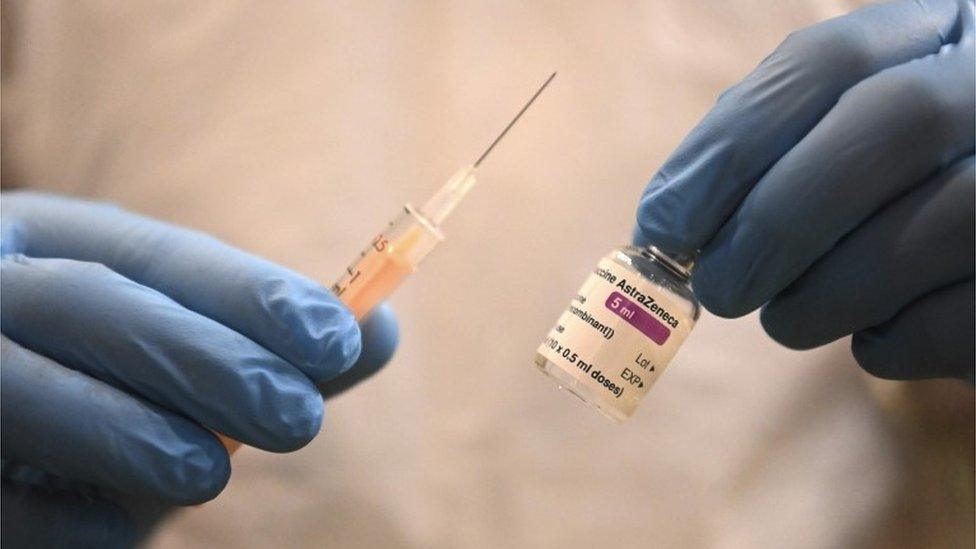
- Published20 March 2021
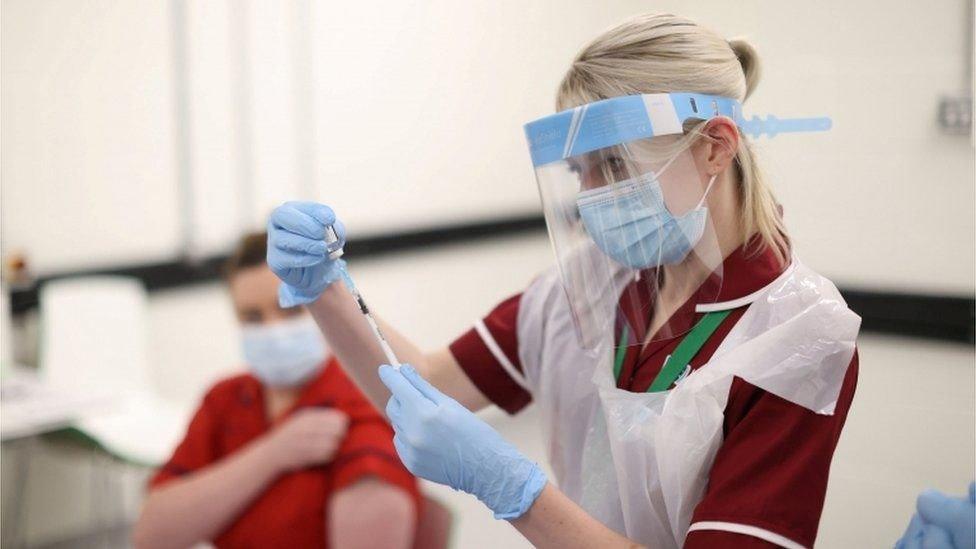
- Published18 March 2021
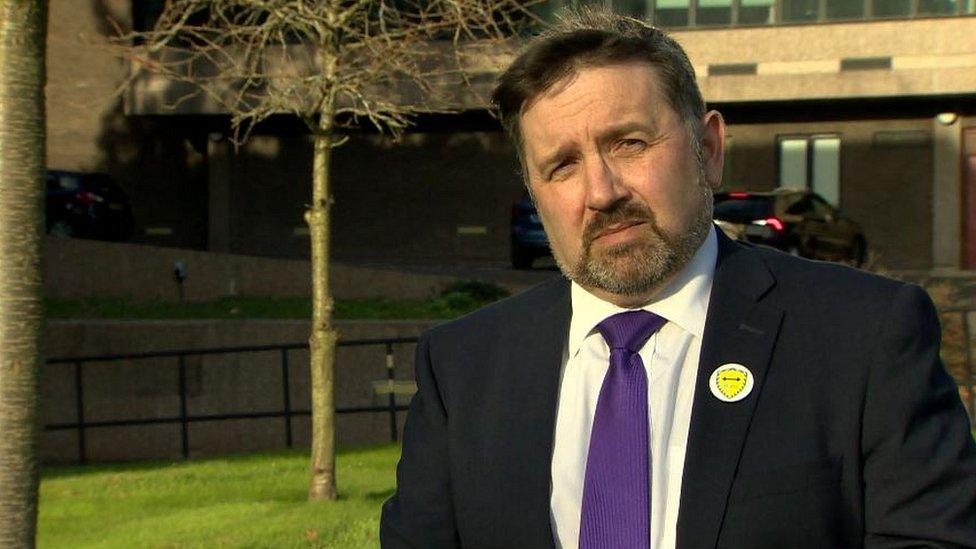
- Published26 February 2021
